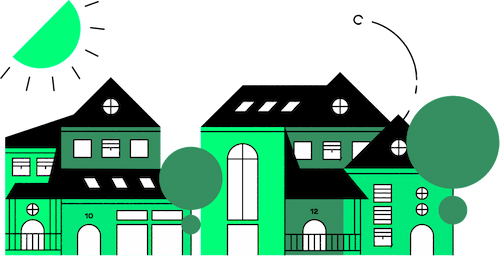Strike is moving to a new home
Find out more4 Bed Houses for Sale

Buying a 4 bed house is a really exciting step, and a big achievement! The average 3-4 bed properties in the UK was £291,618 in 2020, and looking at just four beds alone is going to be more expensive. Whilst this is quite a lot more than 3 beds, the value is also increasing at a higher rate than smaller homes so you’ll make a juicy turnover when you sell.
4-bed houses for sale
Filters
Buying a 4 bed house is a really exciting step, and a big achievement! The average 3-4 bed properties in the UK was £291,618 in 2020, and looking at just four beds alone is going to be more expensive. Whilst this is quite a lot more than 3 beds, the value is also increasing at a higher rate than smaller homes so you’ll make a juicy turnover when you sell.
Looking for a 4 bed house in the UK is great fun because you have lots of options depending on what you want. A terraced house, detached or semi-detached may be your best option for a 4 bed. The plus here is that they not only benefit from more space but also gardens, lofts and/or basements.

How much is the average 4 bed house in the UK?
How big are 4 bedroom houses in the UK?
Who buys 4 bedroom houses?
3-4 bedroom houses are the most popular size of home in the UK. 4 bedroom houses make brilliant family homes. Not only would that provide a room for each member of the family (plus potential extra bedrooms for a home office, home gym or guest bedroom), you also get additional amenities. 4 bed houses are more likely, for example, to have a garden or porch, a driveway, a loft or cellar, and a shed or “Granny Annex”. All these add-ons make them very popular with families.
Landlords hoping to rent out the rooms may also opt for a 4 bed house, as this kind of large property is popular with sharers and students.
How much value does a 4th bedroom add to a house?
What are some advantages of having a 4 bedroom house?
What are some disadvantages of big houses?
Having a bigger house (like a 4 bed or more) will most likely be more expensive to run. Heating bills will be higher, as it’s harder and more costly to heat up a big space. If the house is detached this will be particularly true, as more heat escapes when there are no shared exterior walls.
Another slight negative is the fact that 4 beds are less readily available than 3 bed houses. This means it might take you a while to find that 4 bed of dreams, plus it could mean a little more waiting if you should decide to sell it down the line. All good things come to those who wait though, and you should receive around 15%-20% more money on a 4 bed than a 3 bed, or an average of £51k in real money terms.
You will also pay more council tax on a 4 bedroom house, versus a 3 bed house or smaller. Of course a 4 bedroom house will be more expensive than a smaller property, which is a downside if you’re on a budget.
If you’re planning on renting out a bigger house, you will inevitably have more upkeep on the property - if it’s a big size with a garden there will be lots of maintenance to do during and in between tenancies. A bigger house means a bigger group, which tends to mean more wear and tear.
Are big houses good to buy and rent out?
What type of houses have 4 bedrooms?
What area is best to live with a family?
Are 4 bedroom houses hard to find?

Find your borrowing potential
Mortgage advice, without the fuss
Find the best possible rate and borrowing options for you
Friendly, straightforward mortgage advice — without the jargon
Access to over 90 lenders and over 12,000 deals
Strike feel free
Copyright © Strike Limited 2024

